Non-Surgical Lipedema treatment is crucial to the effective control of lipedema. Dr. Alexandre Amato’s Lipedema patients do not undergo any Lipedema surgery until they can first control their inflammation. By addressing edema and lifestyle changes, following Lipedema nutrition changes, patients experience a decrease in painful fat nodules, as seen below in the lateral malleolus in a patient with stage 1 lipedema.
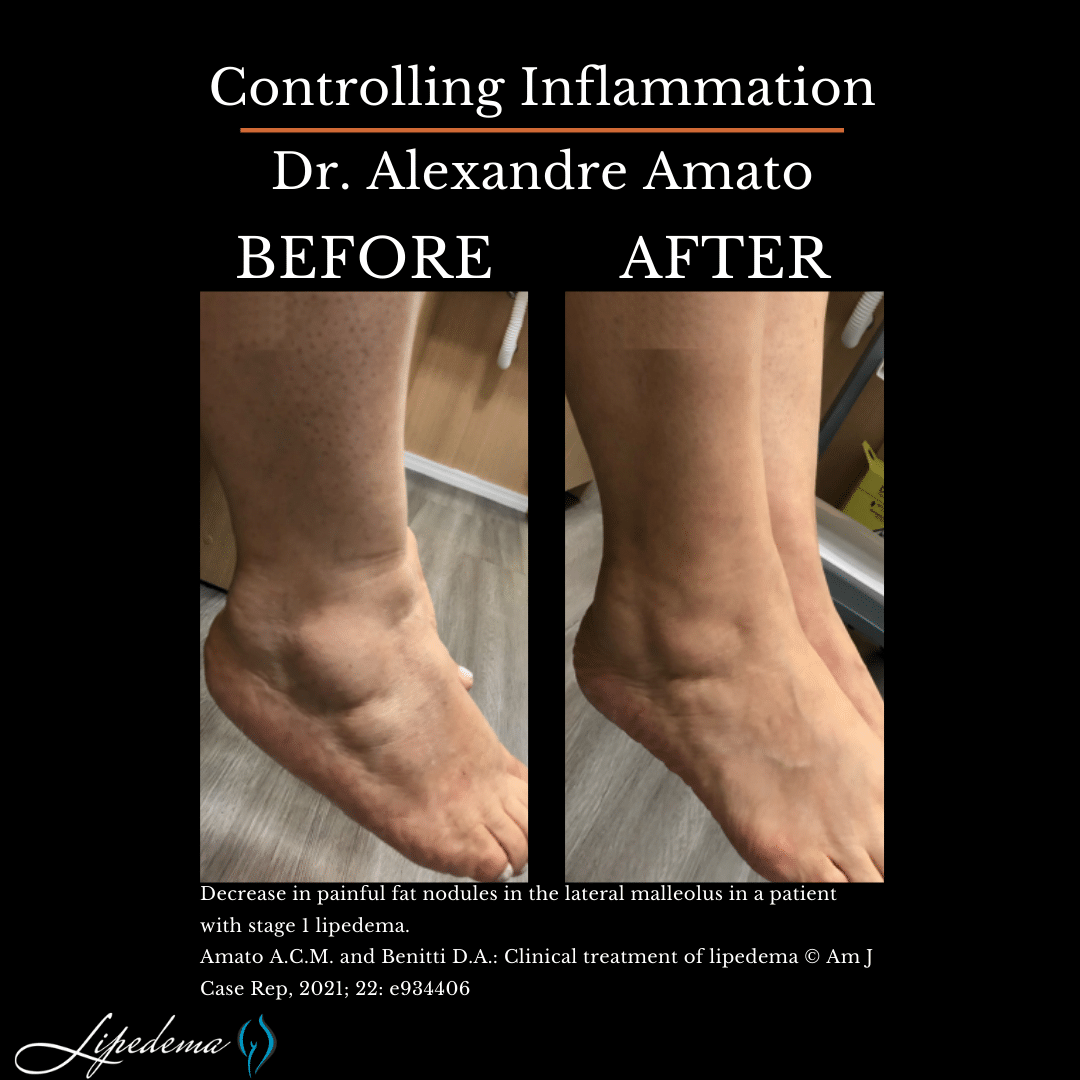
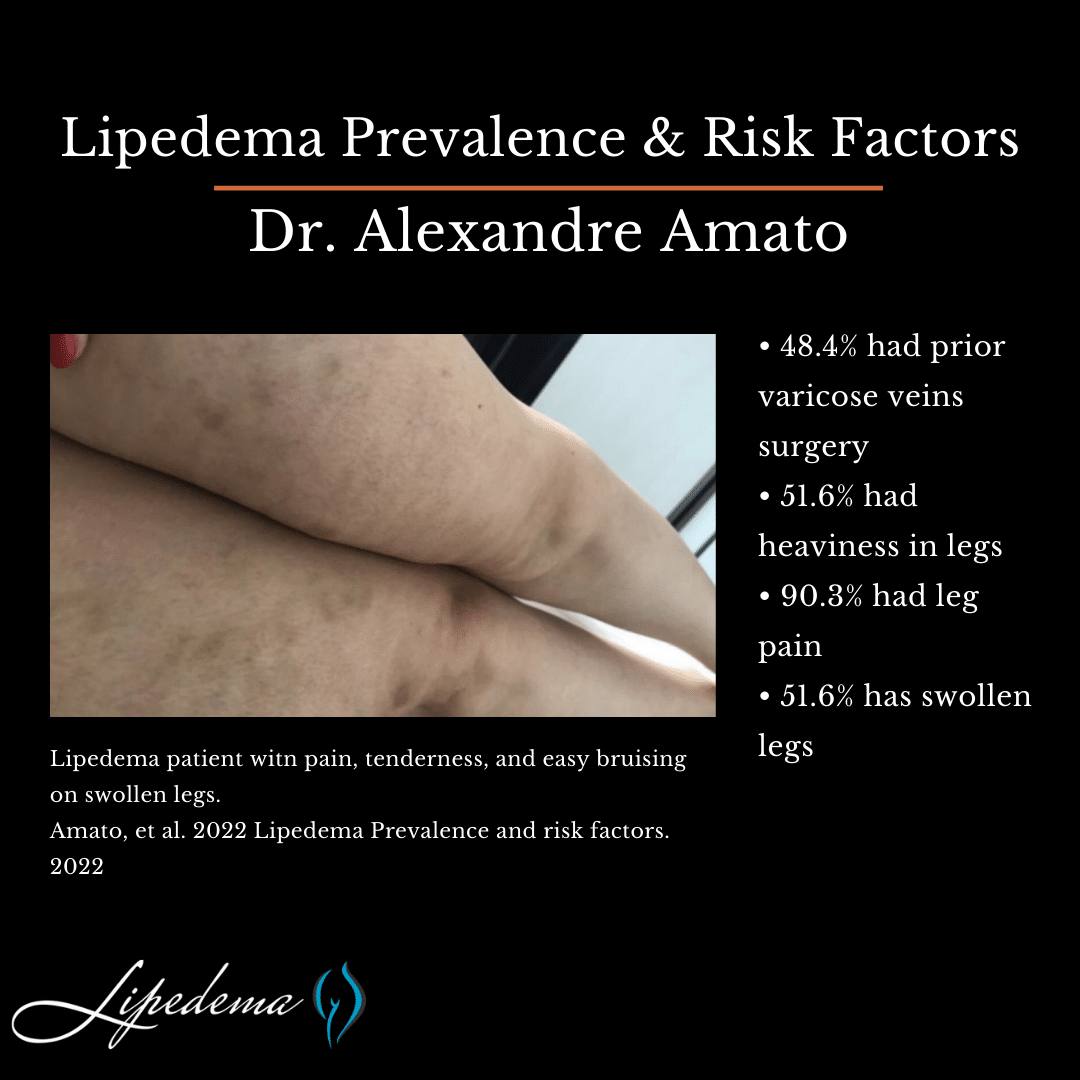
Lipedema is a disease stemming from inflamed subcutaneous adipose tissue. Inflammation is what causes tenderness and pain in the tissue an leads to fibrosis and lymphatic impairment. It’s normal for patients to be eager to get surgery to remove the painful, heavy tissue, but in reality, the surgery will not be successful long-term if the inflammation is not tamed up-front. Dr. Amato has outlined ways to address inflammation through diet, and his patients have seen excellent results, both in the non-surgical approach and followed by their surgeries.
Summary of Dr. Amato’s lipedema patients:
- 48.4% had prior varicose vein surgery.
- 51.6% had heaviness in their legs.
- 90.3% had leg pain.
- 51.6% had swollen legs.
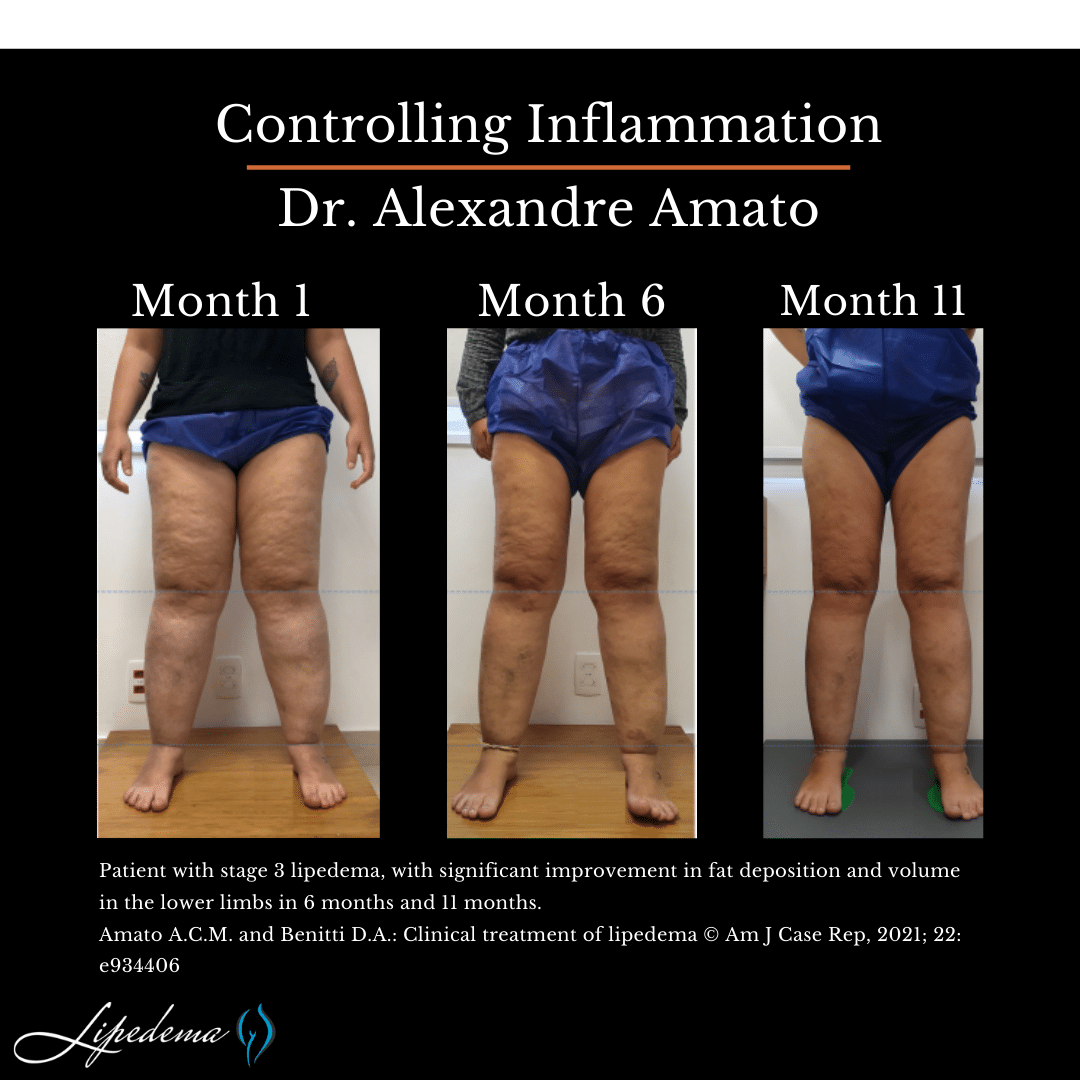
Treating Inflammation Before Lipedema Surgery
Treatment of the inflammation starts with diet and lifestyle. Compression stockings and garments have anti-inflammatory effects, and exercise has anti-inflammatory benefits. However, diet can have the most powerful impact on inflammation. Seen above, one patient with stage 3 lipedema saw significant improvement in the fat deposition and volume in their lower limbs after just six months of lifestyle changes, lipedema nutrition guide, followed by increased reduction at month 11.
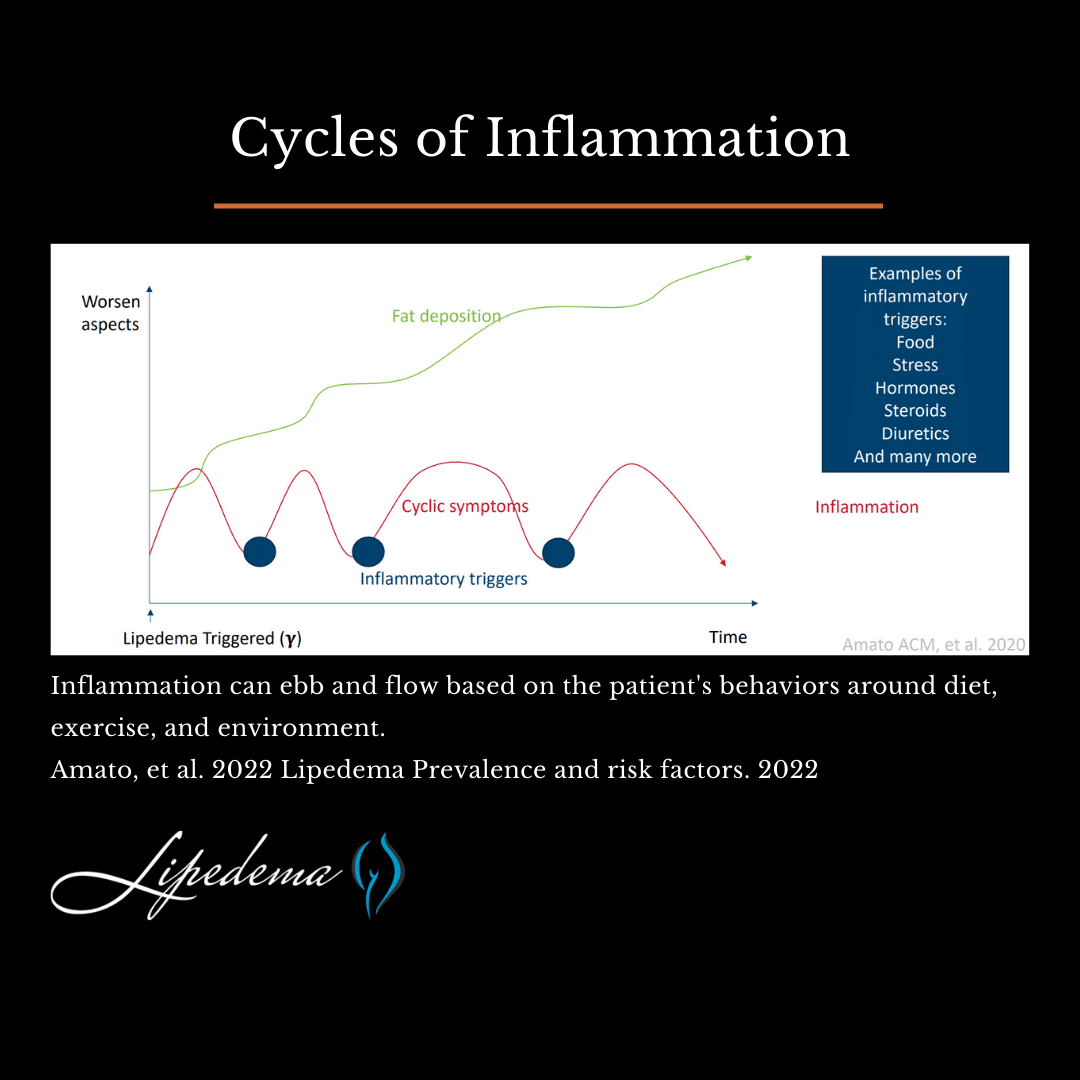
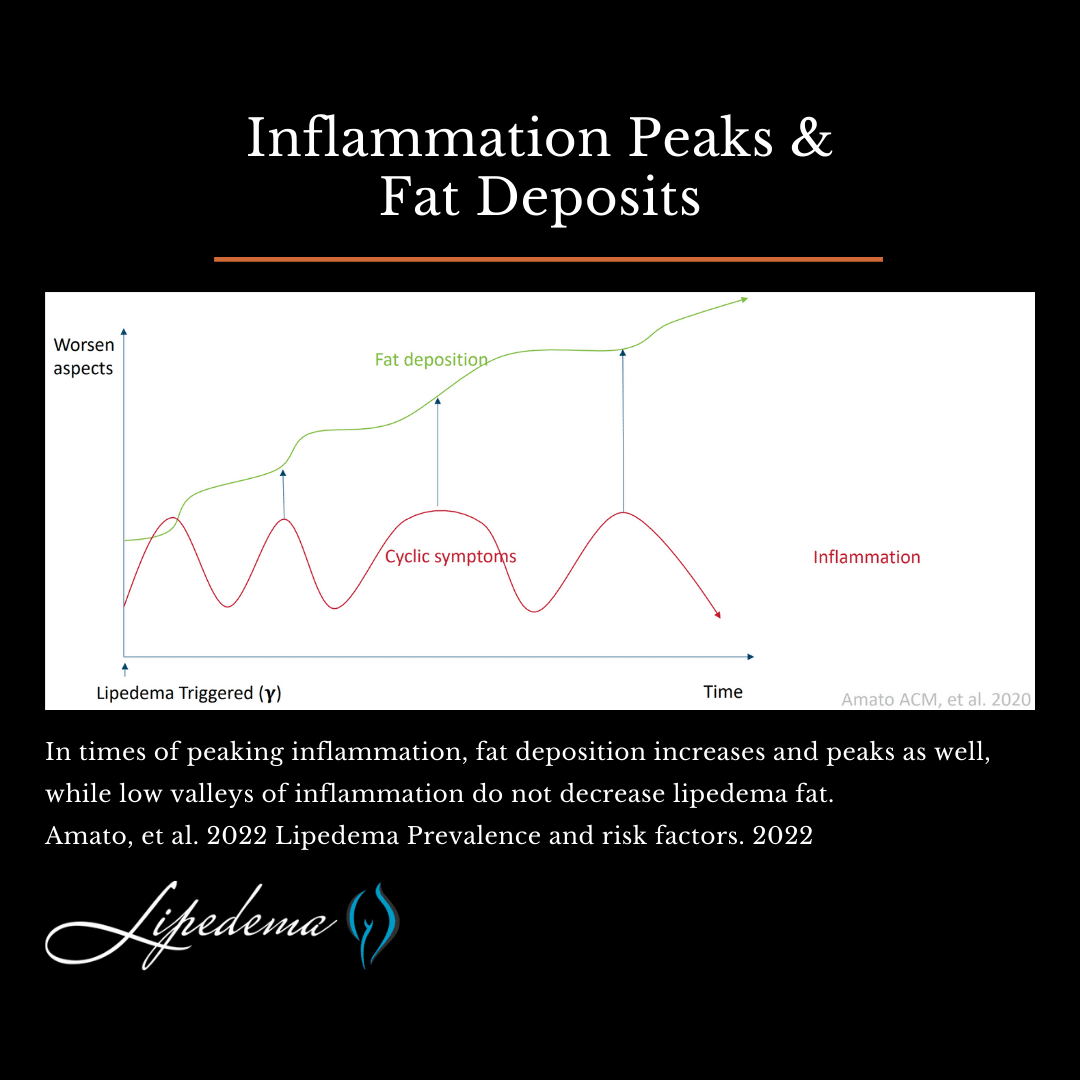
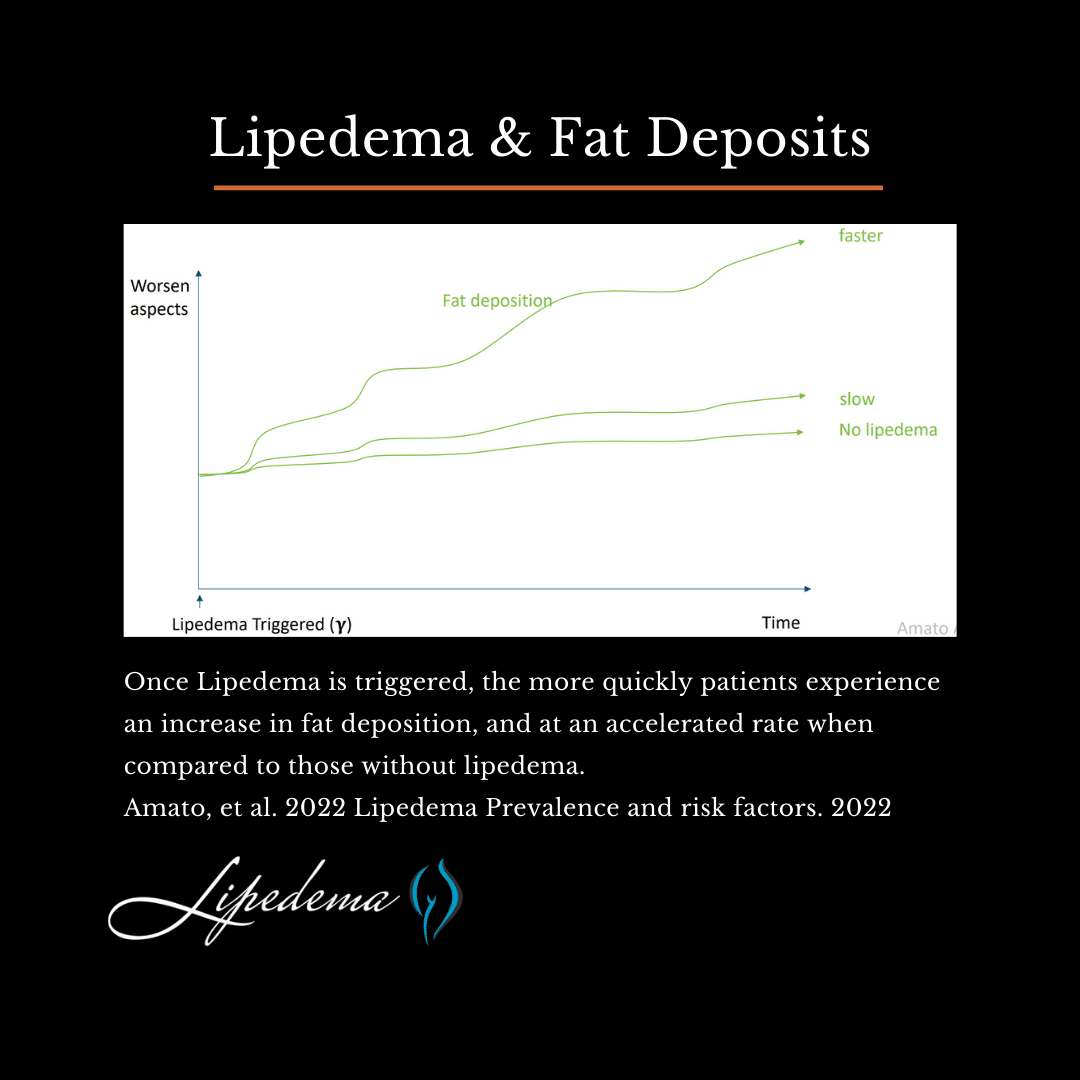
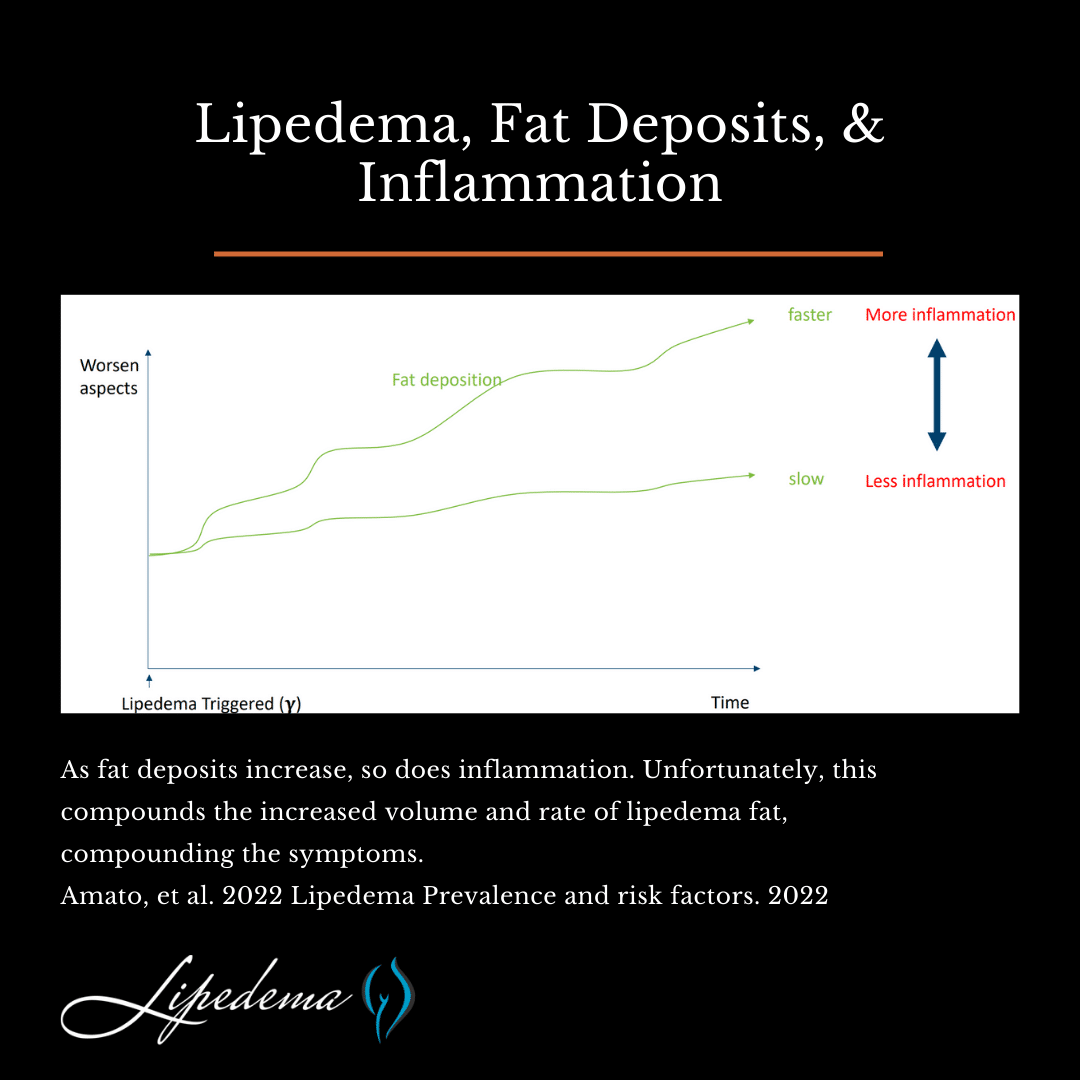
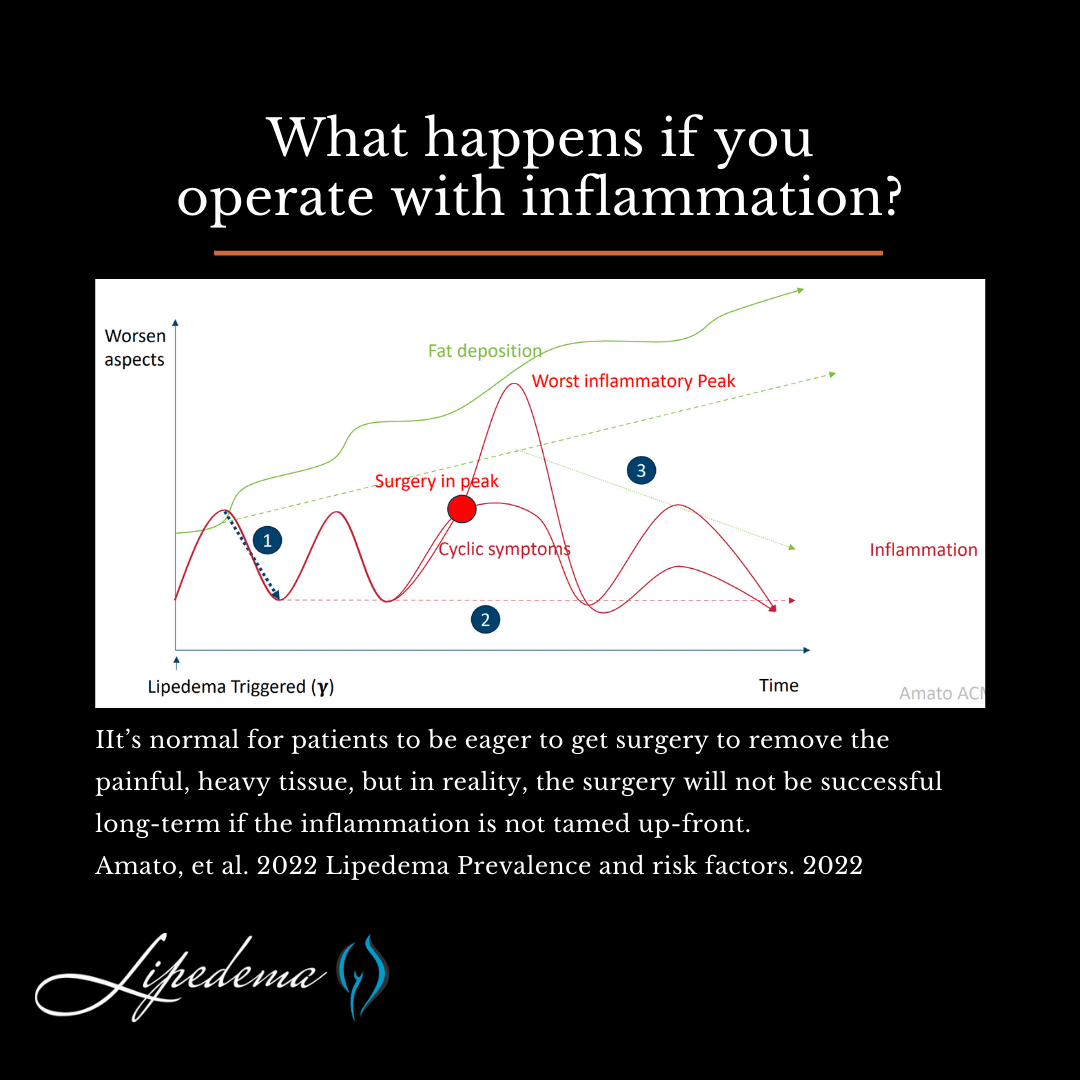
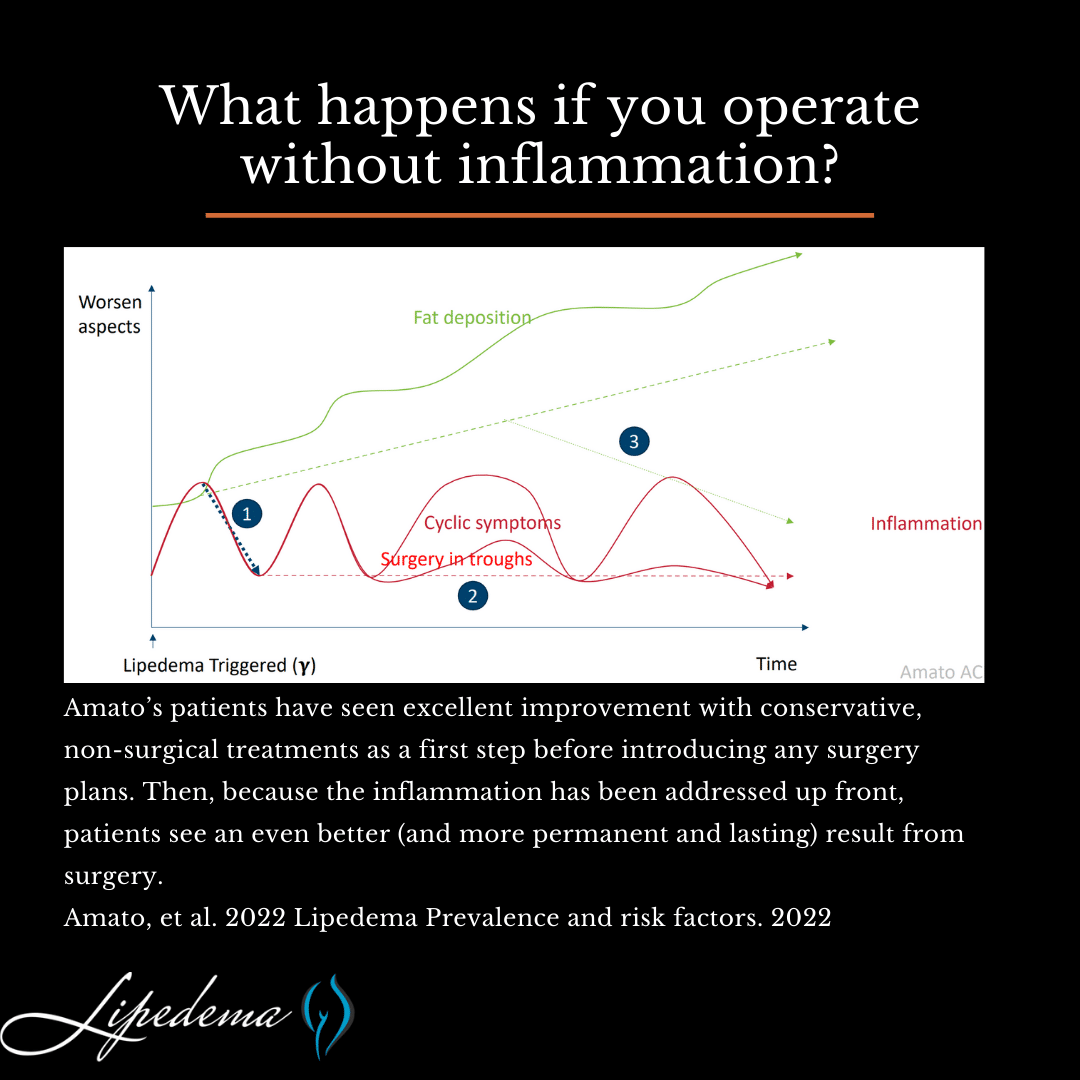
It is crucial to break the inflammation that is going on in the fat for it to be able to be mobilized with diet. The inflammation in the lipedema tissue is improved, and the lipedema tissue will begin to respond to diet and exercise.
What Types of Foods Cause Inflammation?
The more highly processed the diet, the more inflammatory. Highly refined carbs are one of the most pro-inflammatory foods and cause a spike in blood sugar, which leads to a spike in insulin levels. As insulin levels spike, tissues swell and lead to fat deposition. White bread and almost any baked goods – especially ones that come out of a box – are the most important refined carbs to avoid.
Anti Inflammatory Lipedema Nutrition Guide
Whole, unprocessed foods such as low-carb vegetables, spinach, broccoli, and the like are anti-inflammatory. They have fiber and other indigestible products called prebiotics, which helps heal the inflammation in the gut by promoting healthy bacteria and balance.
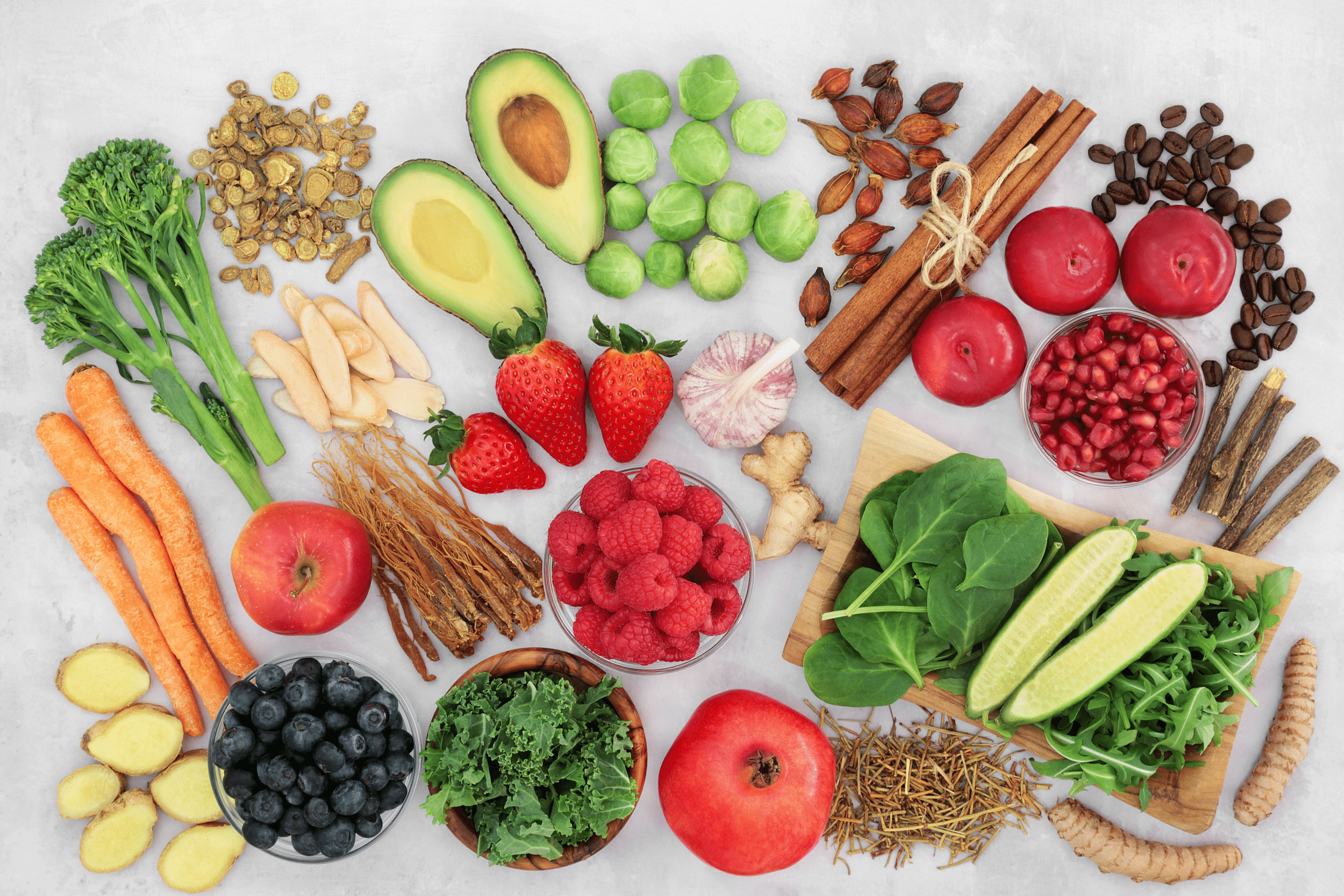
Dietary fat can be both good and bad for inflammation, so it’s important to pay attention to what type you’re eating. Saturated fats in junk foods and fried foods create inflammation, while unsaturated fats like Omega-3s in fish and seafood products or Omega-9s from olives, avocados, and other fatty plants reduce inflammation in the body. We recommend everybody with lipedema follow a clean, low-processed, low-carb diet. Dr. Amato suggests that women with lipedema don’t get full dietary improvement until they go to the ketogenic diet.
How do I figure out which foods are inflammatory for me?
It is crucial to break the inflammation that is going on in the fat for it to be able to be mobilized with diet. The inflammation in the lipedema tissue is improved, and the lipedema tissue will begin to respond to diet and exercise.
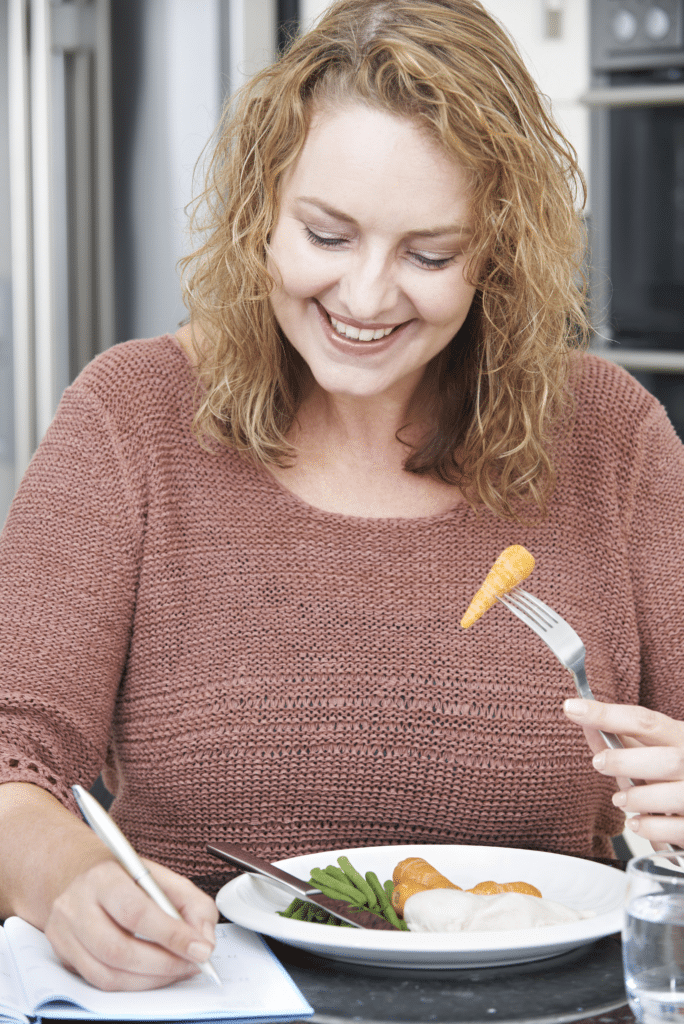
Another thing that may be needed to address the inflammation in women with lipedema fully is food sensitivity testing with blood work and/or an elimination diet to see what foods trigger the inflammation. This is variable, some women have sensitivities to one thing but not others, and others have sensitivities to a completely different set of foods. We recommend keeping a food journal to keep track of what you’re eating and then circling back to your logs a few hours later, or even the next day, to see how you feel after digesting your meals, as it is also important for bariatric surgery.
Amato’s patients have seen excellent improvement with conservative, non-surgical treatments as a first step before introducing any surgery plans. Then, because the inflammation has been addressed up front, patients see an even better (and more permanent and lasting) result from surgery.
Read his full case study here.
Dr. Wright’s Lipedema Liposuction Master Class

